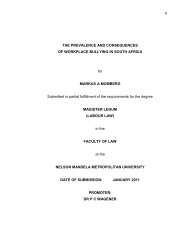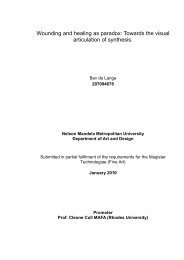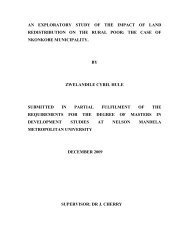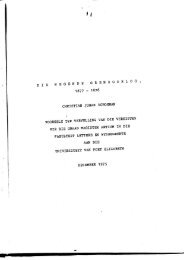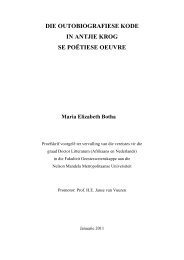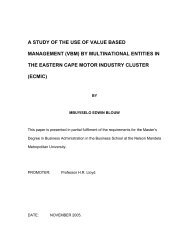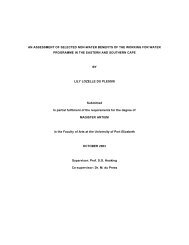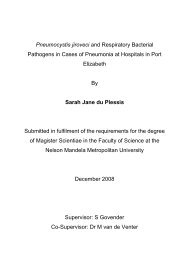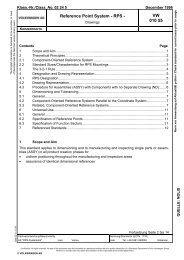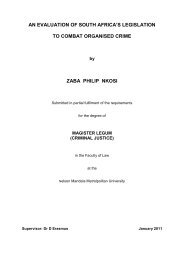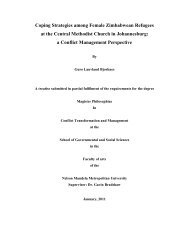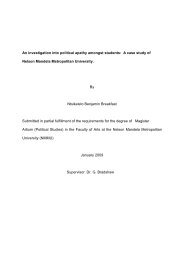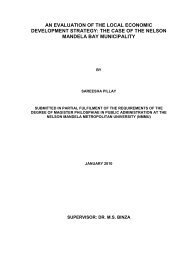Elaine Browne.pdf - Nelson Mandela Metropolitan University
Elaine Browne.pdf - Nelson Mandela Metropolitan University
Elaine Browne.pdf - Nelson Mandela Metropolitan University
Create successful ePaper yourself
Turn your PDF publications into a flip-book with our unique Google optimized e-Paper software.
Introduction<br />
Chapter 3<br />
Research design and methodology<br />
The research design and methodology employed in this study will be discussed and explained in<br />
this chapter. The research design provided the scaffold for answering the intentional question<br />
for the study, which aimed to determine how teachers responsible for the teaching of Arts and<br />
Culture in the Intermediate Phase at previously disadvantaged schools experience the<br />
implementation of this learning area. The paradigm, approach, sampling methods and data<br />
collection strategy are described.<br />
Research paradigm<br />
The term ‘research paradigm’ refers to the underlying position from which a study commences.<br />
Babbie (2004, 34) sees paradigms as “fundamental models or frames of reference we use to<br />
organize our observations and reasoning”. Theories and inquiries seek logical explanations for<br />
certain behaviour patterns in society, such as the teaching profession. Paradigms constitute<br />
the foundations for social theories and inquiry (ibid, 33).<br />
This study is positioned within the interpretative paradigm. Interpretative studies endeavour to<br />
interpret and understand the underlying meanings and intentions of human behaviour. The<br />
intention is not to explain human behaviour by applying “universally valid laws” (De Vos 1998,<br />
43



